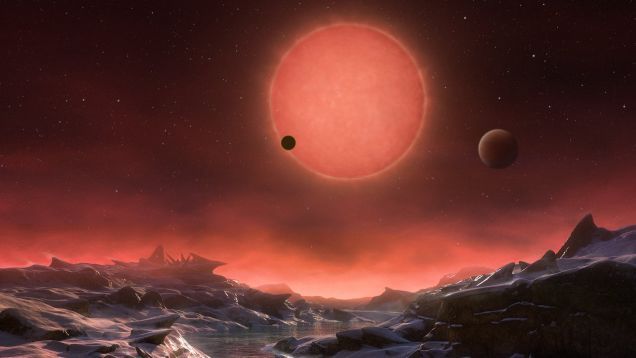In a few years, powerful new telescopes will usher in a search for habitable worlds outside our solar system. And TRAPPIST-1—a dim, tepid star just a smidge larger than Jupiter—is one of the first places we’ll look. It’s only forty light years away, and it’s home to several promising, Earth-sized exoplanets.
Three siblings, described today in the journal Nature, are the first exoplanets ever discovered around an “ultracool dwarf” star. And they’re a jackpot when it comes to the search for alien life. Each planet is similar in size to Earth or Venus and probably rocky. The planets all skirt the edge of the so-called habitable zone. Finally, these potential Earth twins are so close to us that we can begin studying their atmospheres right now.
“This is basically a paradigm shift,” study co-author Julien de Wit told Gizmodo. “If these planets have atmospheres, they really are the best places to look for life.”
